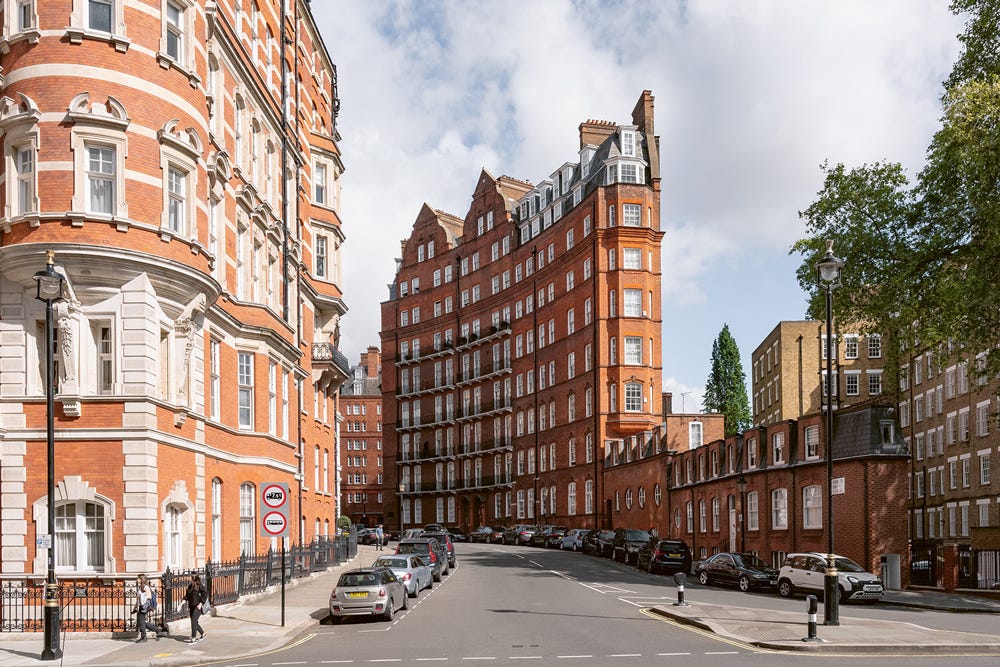Time is a Flat circle
The Building Safety Regulator freezes both new builds and flat refurbishments
In the past year, only 3,990 homes started construction in London, which is a slow-moving tragedy. The reasons for this are varied, and I’ll be discussing them more in future substacks and CPS work. But one of the most commonly cited explanations is the Building Safety Regulator (BSR).
The BSR was established in the wake of the Grenfell Tower disaster. It’s been given the mandate to approve every new building taller than 18m. However the roll out of the BSR has been chaotic with 69% of pre-construction applications being rejected. The median waiting time for approval has grown to 36 weeks, far beyond the initial target of 12 weeks. New homes all over the country are caught up in the waiting times, without any certainty that they will ever get approval or when they will hear.
But it is not just new construction that the BSR is holding up. One friend of the CPS has got in touch to describe their nightmare flat remodelling that is on hold until the BSR approves the plans. No walls are being moved nor significant changes to the structure, just a standard refreshing of the interior.
The flat is within an existing building that’s just over the 6 storey threshold where the BSR has jurisdiction. The plans were submitted in the first quarter of this year and the BSR was expected to make their decision within an 8 week time frame.
Yet after the initial 8 weeks, the BSR asked for a month-long extension. After the month was up, the BSR asked for another six week extension.
But this six week extension came with an implicit threat. If the applicant didn’t agree to it, the BSR would simply reject the application and the refurbishment would go back to square one. Faced with no good choices, the applicant reluctantly agreed.
Take a guess what happened once the six week extension date was reached recently.
After a few weeks of radio silence, another extension was requested, and this time until December 2025.
At the same time the BSR is repeatedly pushing back the approval they are also asking for more money. In total the applicant has paid several thousand pounds to the BSR and they are no closer to an answer.
To sum up, the whole process is expected to take at least nine months, for what should have been only eight weeks. There’s been several requests for extension, which are de facto demands because if the applicant said no, the BSR would just reject the application. But of course, there’s no guarantee that the BSR will make up its mind in December. Given its awful track record, another delay is a strong possibility.
All of this uncertainty matters. Getting all the contractors aligned to do a home remodel, just to have the start date continuously pushed back is hideously expensive. Any home remodel project is stressful at the best of times. Not having a guaranteed date where work can start makes it all but impossible to organise the project.
These delays are costly in financial terms, but they also have a safety component. The biggest fire risks come from outdated accommodation and overcrowding. This particular project will update electrics and add in new fire doors and fire alarms in line with current building standards, which will make the flat safer. By creating barriers to modernising flats, the BSR is effectively encouraging outdated interiors to stay.
Sadly this case was not a one off either. The former Building Safety Minister, Rushanara Ali, answered a parliamentary question about this topic with the admission that of 606 applications for existing buildings, only 12 (2%) were approved within the eight week period.
At the end of the day, there’s something un-British about the whole process. The system should deliver to its own timelines and reward the people who patiently wait and follow the rules. Yet instead, the goalposts are constantly shifted. Rather than getting on with it, the BSR repeatedly breaches its side of the bargain.
The Government has recognised that the BSR has become a blocker and has pledged more funding. But as this case shows, it is not just about funding, there’s a deeper institutional rot where there is little incentive to approve a project and a strong preference to keep kicking the can down the road.
The BSR should have a rule of positive silence to focus itself on where it can make the most impact. If they don’t say yes or no within the eight weeks they’re allotted, the application should automatically be accepted. Instead of constantly asking for extensions, the BSR would be forced to actually determine which applications are the riskiest and spend their time on them, rather than just stringing every applicant along. That would mean more focus on the dangerous cladding that spread the fire at Grenfell, and less delay on minor flat remodels.


